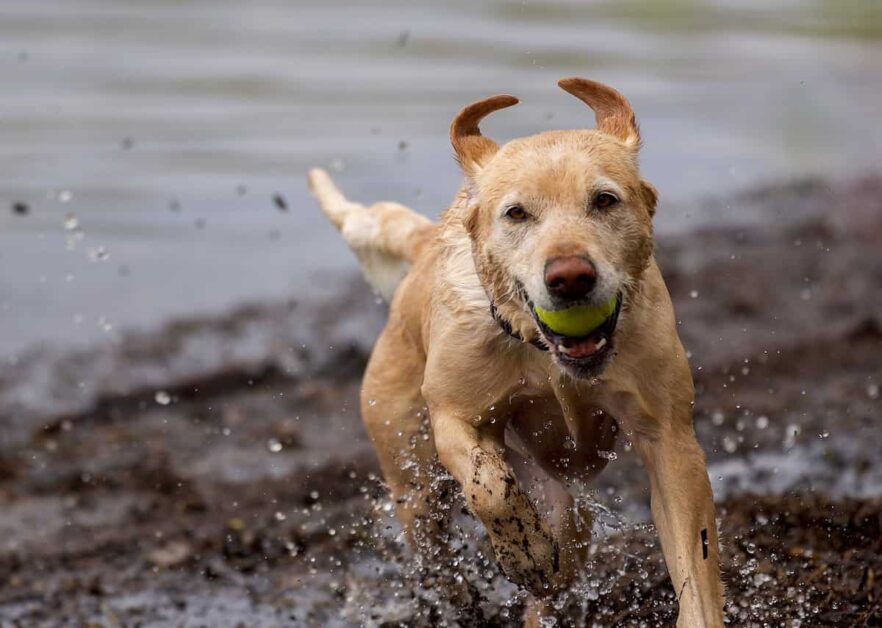When it comes to guarding, Labs may not be the first breed that comes to mind, but they can make excellent guard dogs under the right circumstances. Labs are not naturally aggressive; they can be trained to be good watchdogs.
They have a strong sense of smell and are quick to alert their owners of any potential danger. Labs are also known for their strength, which can make them effective at deterring intruders. Labs are not typically suited for guarding tasks that require aggression, such as police work or military operations.
They are more suited for guarding tasks that require a combination of intelligence, loyalty, and protection. With early training between 8-12 weeks old, they can become trustworthy watchdogs against intruders.
Watchdog Vs Guard Dog: Differences
Watchdogs alert their owners by barking or making noises when they detect potential danger. Guard dogs are alert and take down intruders and protect their territory.
What Makes A Good Watchdog?
A good watchdog alert its owner to unusual or potentially dangerous situations. They have heightened senses, sharp instincts, and a keen awareness of their surroundings.
A good watchdog remains vigilant at all times, constantly monitoring its environment. A Labrador Retriever can be a good watchdog. Labs are not aggressive like a German Shepherd or a Doberman. However, labs are excellent at detecting disturbances. This friendliest dog breed is always eager to please.
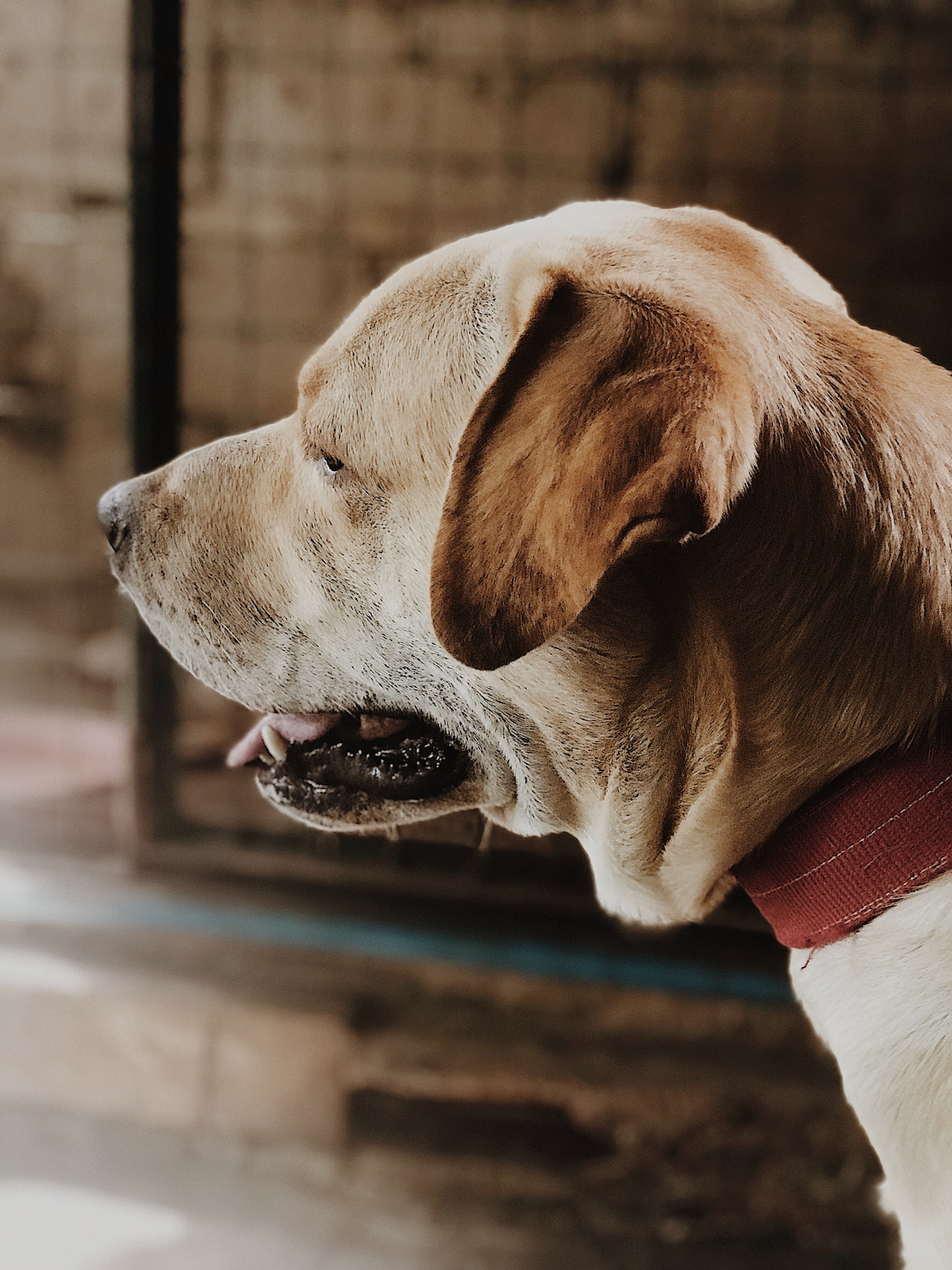
Are Labradors Good Watch Dogs To Train?
Training them to be watchdogs is a rewarding experience. Intelligence, loyalty, and keen senses are a few labrador traits. It makes them capable of picking up on unusual activities in their surroundings.
Labs don’t behave aggressively towards strangers like some guard dog breeds. This friendly nature is an advantage to being a reliable watchdog.
Their inherent curiosity and loud barks are beneficial. However, they will never become vicious attack dogs themselves. Through proper labrador training, they can easily learn basic commands. It enables them to warn owners.
Can A Lab Be A Good Guard Dog?
Training labs to be good guard dogs may not be a great idea. Labs never engage with the intruder. However, these playful dogs can become guard dogs with the most straightforward training.
Labs are one of the smartest dogs. They can imitate human beings and, with proper training, can assume guard dogs’ responsibility. These dogs can alert their owners with a loud bark. Labs are quick to react, loyal, and very friendly dogs.
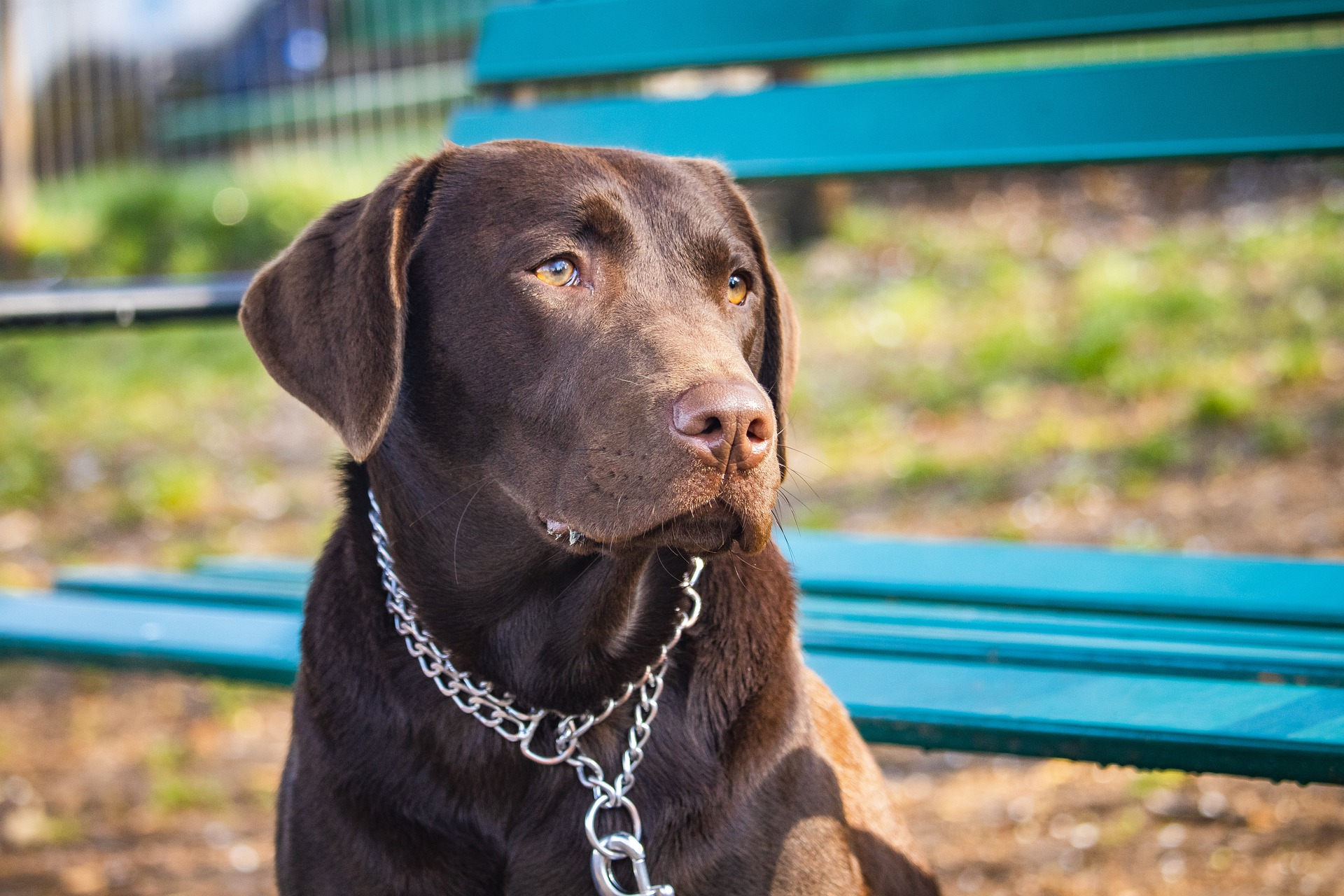
Guard Dog Training Process For Labrador
Basic Obedience Training
Before Labs can be trained as guard dogs, they must have a solid foundation in basic obedience training. This includes commands such as sit, stay, come, and heel.
Socialization
Socialization is an important part of training Labs as guard dogs. This involves exposing them to people, places, and situations to help them develop a well-rounded temperament.
A few innovative techniques
Protection training teaches your Labs how to protect their owners and property. This includes developing skills such as barking on command, standing guard, and apprehending intruders.
- Wear proper protective clothing.
- Ask your dog to come at you and bite on your arm, which is padded with foam and other protection. You can use a fake blow-up doll.
- Use positive reinforcement training as well on the side. This conditions your lab on how to react when they see an intruder.
Limitations of Lab As A Good Guard Dog
Aggression
Labs are not naturally aggressive dogs, which can be a disadvantage in guarding situations requiring a more aggressive approach.
Specialized Tasks
While Labs can be trained for various guarding tasks, they may not be well-suited for specialized tasks such as police work or military operations.
Do All Dogs Display Protective Behavior?
Labradors are one of the calmest dog breeds. Any dog can display protective behavior irrespective of its natural temperament. However, not a new puppy because puppies need protection and cannot act as protectors. A dog responds well to threats when it reaches social maturity. There is no significant difference between a male and a female watchdog.
What’s the Difference Between Protection and Possession Behavior in a Dog?
Each dog reflects aggression through protection or possession. Resource guarding or possessive aggression is when a dog reacts to an object or resource that concerns its survival. It is a behavior that prevents another from getting close to or taking an object from a dog’s area.
Dogs reflect such behavior over toys, treats, bowls, space, blankets, etc. It is not an indication of a good guard dog. A Lab may ignore intruders if they are away from the dog’s personal space and possessions. Hence, they don’t make good guard dogs.
How Labs’ Past Shape Their Personality Today?
Labradors were originally bred as retrievers and companions for fishermen. A lab is not an aggressive dog. This beloved pet is awesome for a first-time dog owner. They are gentle and extremely friendly, and trainable.
Will A Lab Attack An Intruder?
Behavior proofing is essential for any dog training, including Labradors. It ensures they can adapt well to various situations and environments.
It involves exposing your dog to as many stimuli as possible from an early age. They incorporate loud noises, strangers approaching or walking by, new locations, and unfamiliar scents and sights.
Proper socialization of your lab with other pets and humans is very important. Your friendly Lab will most likely greet everyone on your stroll without behavior-proofing.
Labs are likelier to bark at intruders rather than physically attack them. You can train labs to act as guard dogs, but it’s not their instinct. They require more rigorous obedience sessions than traditional guarding breeds like Belgian Malinois.
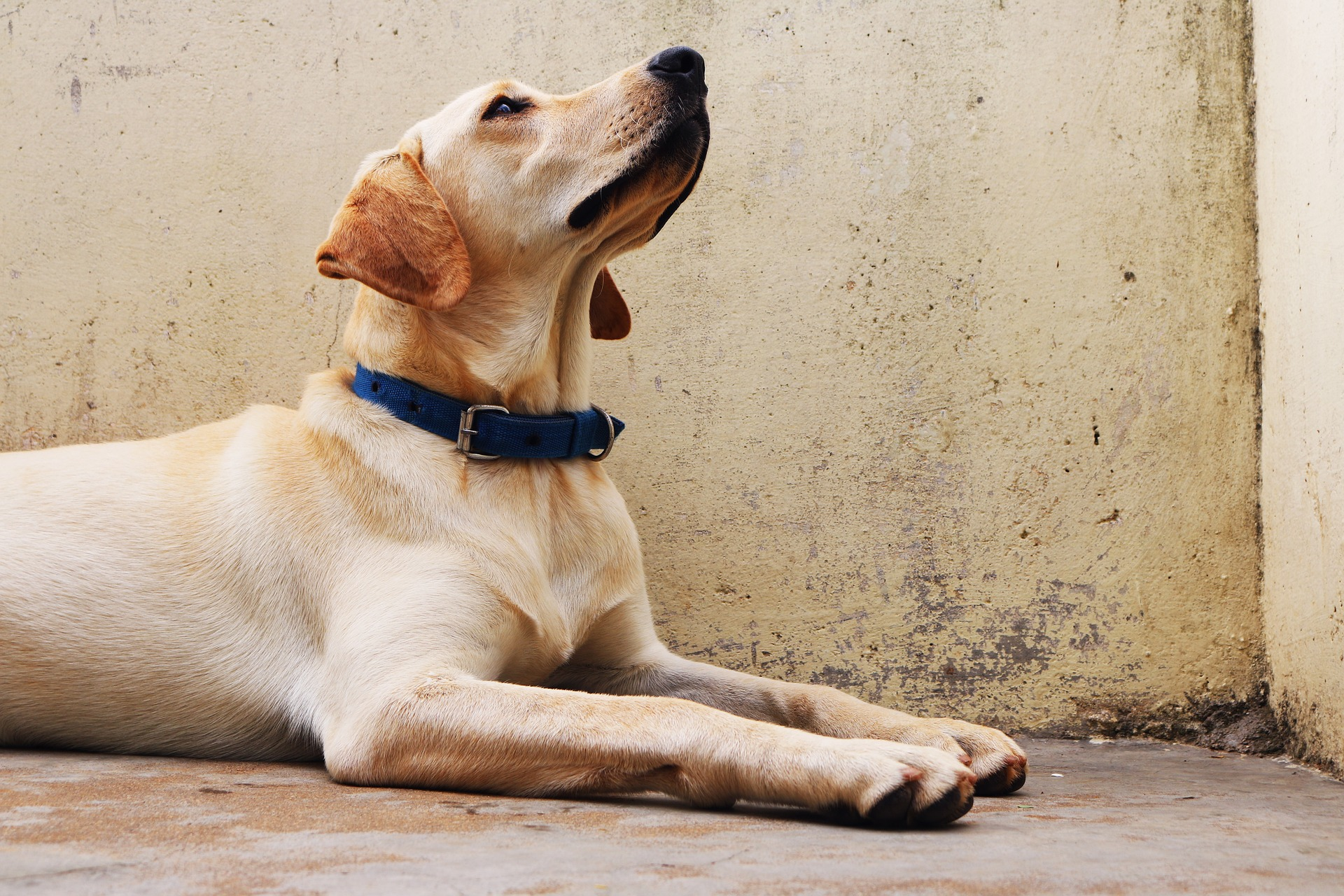
Characteristics That Make Labradors Protective Dogs
Protective behaviors include quick reaction times, loyalty, proactivity in eliminating threats, and the ability to relieve stress.
Labs Are Quick To React
Labs learn quickly. They can easily be trained to respond to various situations. However, they weren’t bred to be a guard dog. But they have an innate desire to protect those they love. It makes them popular pets for families looking for a loyal and reliable protector.
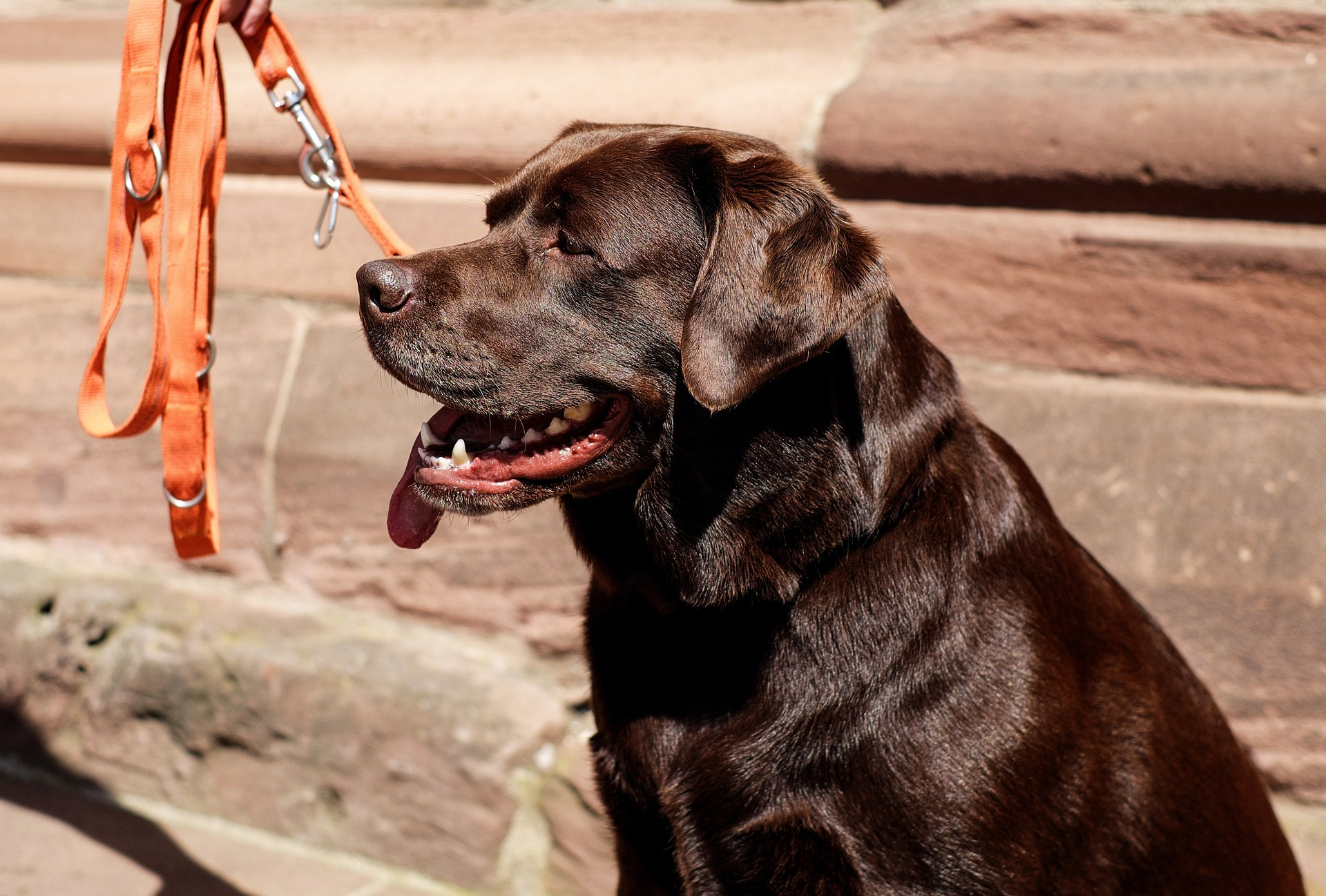
They Are Loyal
Labradors will do anything to protect and defend their family, even if that means putting themselves in danger. Their devotion is unwavering, and they will never leave your side.
This dog understands potential threats and reacts quickly to eliminate them. Labradors make great service dogs. They form strong bonds and follow commands diligently. Also, they excel in search-and-rescue missions due to their unwavering commitment.
Wide Range Of Protection
Labs are highly alert and can sense danger from afar. They are good for home security and can secure large properties like farms or ranches. Their keen sense of smell makes them great at detecting hiding intruders. They have incredible speed and agility to respond to any threat quickly.
Proactively Eliminate Threats
One significant advantage of having a Lab is its ability to eliminate threats proactively. Labs have a strong sense of smell and hearing. It allows them to pick up on things humans might miss.
Stress Relief
Labs are not only dedicated and loyal, but they can also provide stress relief to their owners. Labs’ companionship can have emotional benefits, whether through simple cuddling or playing fetch.
8 Most Protective Dog Breeds
Discover the 8 most protective dog breeds, including German Shepherds, Rottweilers, and Doberman Pinschers.
Belgian Malinois
- Belgian Malinois excels in both protection and service work.
- They are intelligent, athletic, and loyal, making them excellent guard dogs.
- A well-trained Belgian Malinois has an intimidating presence. Its size, strength, and vocal abilities deter potential threats.
- Belgian Malinois is one of the best breeds for guard dog duty.
German Shepherds
- German Shepherds form strong bonds with their owners and will do whatever it takes to protect them.
- German Shepherds are naturally suspicious and have excellent hearing, making them excellent watchdogs.
- They are fearless in the face of danger and will not back down from a threat.
- German Shepherds can be trained for search and rescue, police work, or even as service dogs.
Rottweilers
- Rottweilers are a large and powerful breed of dog that originated in Germany.
- Originally bred to work as herding dogs, they became popular as police and military dogs.
- A Rottweiler makes an effective guard dog. They are instinctive to protect their territory and family.
- Despite their aggressive reputation, well-trained Rottweilers are highly obedient, loyal, and affectionate.
Doberman Pinscher
- Dobies are highly intelligent and easy to train, perfect for guard dog duties.
- Their muscular build and imposing size make them intimidating to potential intruders.
- Dobies are naturally protective but can become even more effective as guard dogs with the right training.
- These dogs have strong territorial instincts. The Doberman’s sharp senses make them great watchdogs.
Bullmastiff
- Bullmastiffs are large, muscular dogs originally bred to protect gamekeepers from poachers.
- They make excellent guard dogs due to their size and strength but are also loyal and affectionate companions.
- Bullmastiffs are known for their calm demeanor and reserved nature around strangers, making them ideal as watchdogs.
- A Bullmastiff can respond aggressively when confronted with danger while maintaining its gentle disposition.
Giant Schnauzer
- Giant Schnauzers are large dogs, making them physically imposing and able to deter potential intruders.
- These dogs are incredibly smart and learn quickly, making them great guard dogs.
- These dogs have a fearless nature that allows them to face any threat head-on.
- Giant Schnauzers have a high vigilance and are always alert, making them excellent watchdogs.
Rhodesian Ridgeback
- Rhodesian Ridgebacks are a powerful and athletic breed that originated in Africa.
- They were originally bred to hunt lions, making them natural protectors of their owners.
- Rhodesian Ridgebacks have a unique ridge on their backs that can stand up when alert or feeling threatened. This trait makes them appear even more intimidating to intruders.
- They’re also very independent thinkers, so they won’t hesitate to act if they feel their family is in danger.
Cane Corso
- Cane Corso is a large, muscular dog breed that originated in Italy.
- They can be wary of strangers, making them an efficient deterrent against intruders.
- Proper socialization ensures your Cane Corso develops well-rounded protective behaviors.
- This breed’s size and strength make it capable of neutralizing any threat if trained correctly.
FAQ
Are labs naturally protective?
Labrador Retrievers are not considered natural protective dogs due to their friendly nature. Labs are trained as guard dogs with proper dog training.
Can a lab be a protection dog?
While Labs are not typically considered natural guard dogs, they can still provide a sense of security. Labs are loyal, so they’ll react quickly if they sense something’s off.
Are Labradors Aggressive?
Labrador Retrievers are not typically aggressive dogs. They are exceptionally playful, more than most dogs. However, like any dog breed, they can become aggressive if threatened or scared.
Are Labs Protective Of Their Owners?
While they may not be natural guard dogs, Labs display protective behaviors toward their owners. They bark loudly and alert their owners to unusual things or strangers nearby. Labs are generally not overly territorial or naturally inclined towards aggression.
Which Is A Better Guard Dog Golden Retriever Or a Labrador?
Golden Retrievers and Labrador Retrievers are friendly breeds and not the best choice for a guard dog. While Labs can be trained, their instinct is not protective. Similarly, Golden Retrievers are sweet-natured dogs that won’t show aggression toward strangers. Neither breed would be the ideal choice.
What Is The Best Guard Dog?
Popular guard breeds include Belgian Malinois, German Shepherds, Rottweilers, Doberman Pinschers, Bullmastiffs, Giant Schnauzers, Rhodesian Ridgebacks, and Cane Corsos. A guard dog requires rigorous obedience training and consistent socialization. It ensures they don’t become aggressive toward strangers or other dogs.
Can Labradors Sense Danger?
Labradors have an excellent sense of smell and hearing. They can often detect unusual scents or sounds that may indicate danger. However, Labs cannot always distinguish between actual threats and harmless situations. Labradors may protect their owners and sense danger in certain situations. Still, they should not be relied upon as primary guard dogs.
Do Labs Miss Their Owners?
Yes, Labs are known to be very loyal and devoted to their owners. It means they can become quite attached. They may show signs of missing their owners when they’re gone for extended periods.
Author Profile

- In House Labrador Trainer
- Samta is an experienced Labrador trainer and enthusiast with over 5 years of hands-on experience, contributing invaluable insights and advice to Labradorandyou.com. Her deep understanding of Labrador temperament and intelligence underpins her effective training techniques and product recommendations. Through firsthand experience of the joys and challenges of raising Labradors, Samta's articles provide expert advice for both seasoned and new Labrador owners, covering training, care, and innovative product selection. Her commitment to enhancing the well-being of Labradors and their owners permeates her work, making it an indispensable resource for Labrador enthusiasts
Also by the author
 FAQNovember 16, 2023Why Is My Dog Pooping So Much? MUST KNOW Facts
FAQNovember 16, 2023Why Is My Dog Pooping So Much? MUST KNOW Facts FAQNovember 16, 2023Why Is My Dog So Skinny? 9 Reasons With Solutions
FAQNovember 16, 2023Why Is My Dog So Skinny? 9 Reasons With Solutions Mix-BreedsNovember 16, 2023Straight Haired Labradoodles Complete Guide: All You Need To Know
Mix-BreedsNovember 16, 2023Straight Haired Labradoodles Complete Guide: All You Need To Know Lab-TypesNovember 6, 2023Block Head Labs: Are They Better And Healthier?
Lab-TypesNovember 6, 2023Block Head Labs: Are They Better And Healthier?
